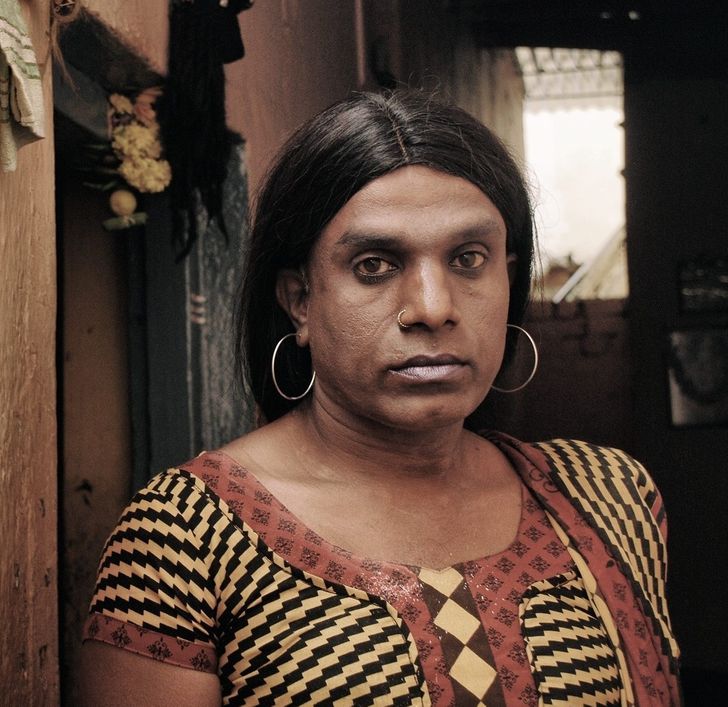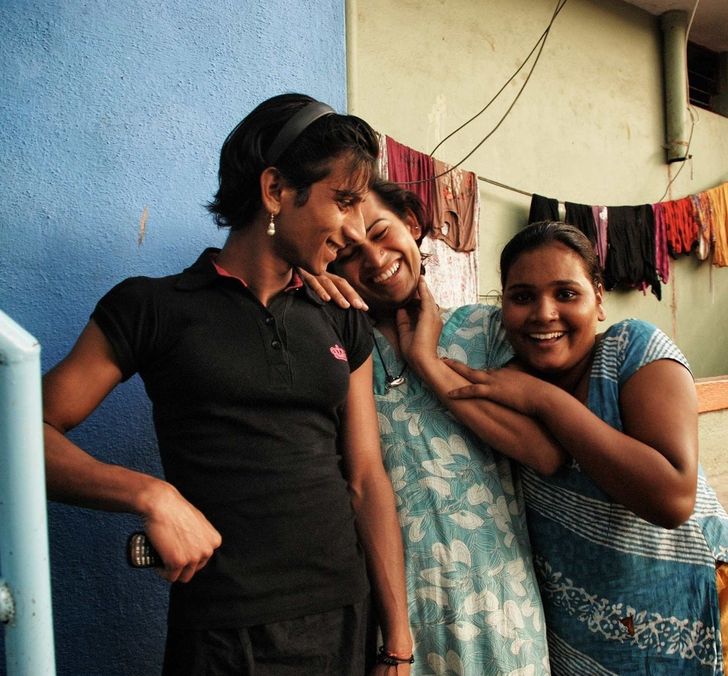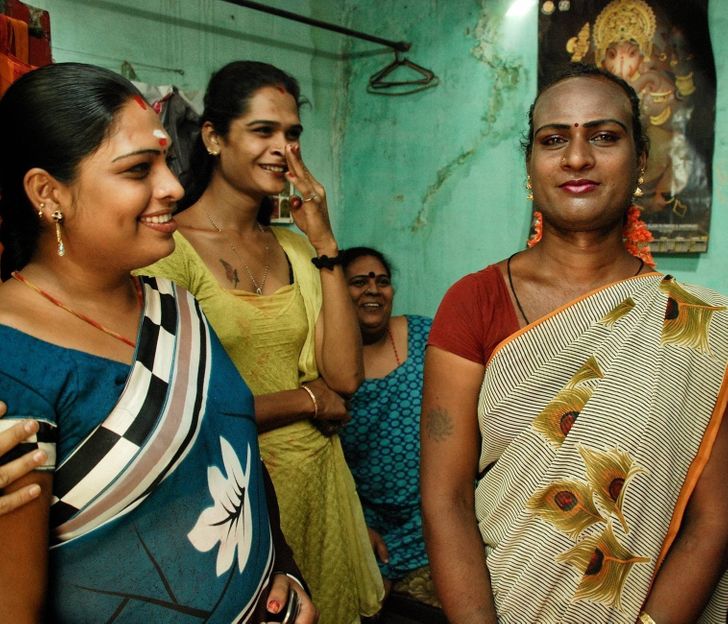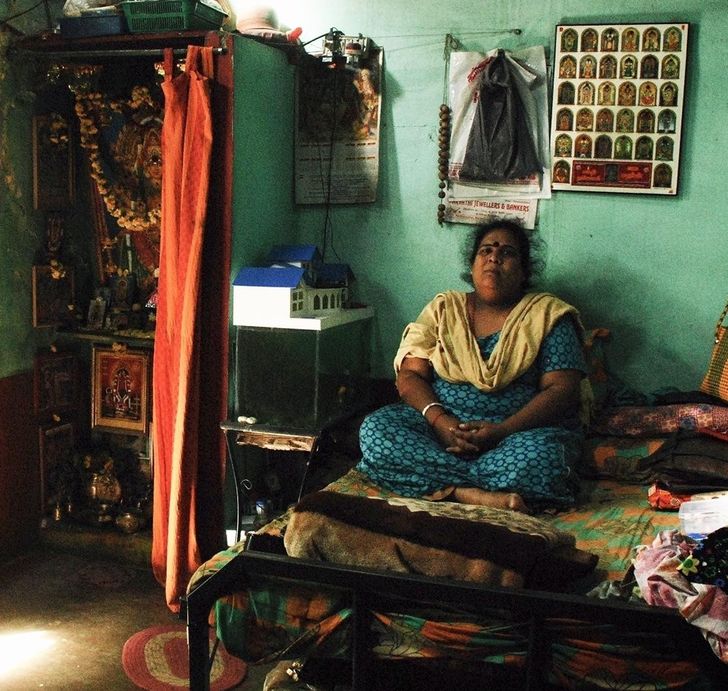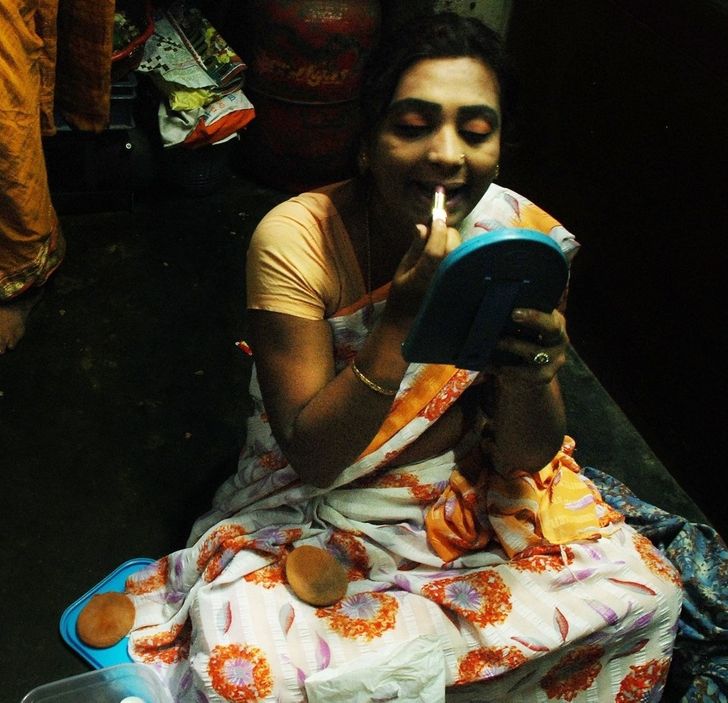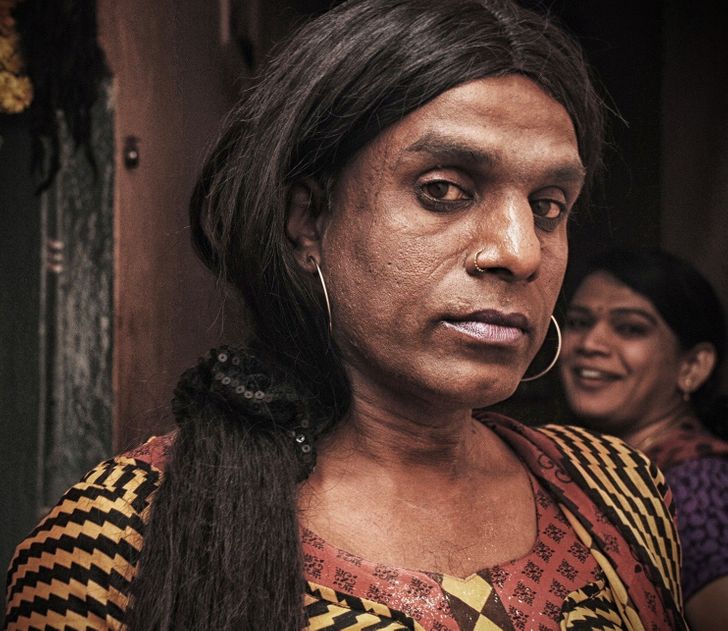Yeah it's our transgender community living in poverty, at least government should take care of them as well like others, we all are humans and made by God and need to love them and I wish I would be prime minister of My Country or would have much money to help them,, people need to think deeply about that community,as soon as possible ,, because life is too short
A Transgender Woman From India Speaks About the Battles She’s Been Through in Her Life, and It Induces a Rush of Emotions
Hijras are the transsexual and transgender people of India and a big number of them are men who identify as women. They go through very tough times and experience unthinkable horrors, just because of who they are. Saranya is one of the many hijras who struggle with society accepting them for who they are.
Bright Side believes that we are all human and we all deserve an equal amount of respect, no matter what our gender or beliefs are. That’s why we would like to share with you the incredible story of Saranya.
Saranya was not accepted by her own family.
Saranya’s story begins at the tender age of 11. Her parents had been wanting a boy after already having a daughter, but they knew their boy was different from what they had expected. Although she was not yet aware of her real identity, Saranya had to learn very quickly how to hide things from her family. This only brought her pain, since every time she felt her true identity emerging, she had to deal with severe punishments and very bad reactions from the people who were supposed to love her unconditionally.
At the age of 16 she finally left her biological family to escape from the pain and judgment. She left Pune and went to Bangalore in South India.
Life with a new family and her transition
Saranya was introduced to her new family by another trans woman and although Hijras live as one community, they reside in different neighborhoods. And each household has a head, or a godmother, who represents the family in meetings with the other families where they discuss important matters.
In those families, there are no husbands, fathers, uncles, sons, or grandsons. It is a woman’s world, the community is made of grandmothers, mothers, aunts, mothers-in-law, daughters-in-law, daughters, granddaughters, and great-granddaughters. They refer to each other with feminine relative names: Nani for the gurus (or godmothers), khala for the guru’s sisters, and chela for the daughters. Many people use the term shemale to describe a trans woman, but to the Hijras that is highly offensive and, according to them, it mocks and disrespects their gender identity.
When Saranya was accepted to her new family, she had to undergo her toughest challenge yet: her transition to a Hijra and the removal of any trace of her male figure. All Hijras experience an operation called “Nirvan” which means rebirth. It consists of the complete removal of the male genitalia. The operation is very dangerous, especially because it’s done at home, behind closed doors, and not in a hospital. The patient undergoing it experiences immense pain, because there is no general anesthesia. However this ritual is said to get rid of the male blood, so the Hijra can be reborn into a woman.
This operation is extremely dangerous and it should never be done at home.
Hijras are not accepted by society
Saranya is now 58 years old and the only family member she remains in touch with is her older sister. Most Hijras aren’t in contact with their families at all, but eventually, they start missing them and try to contact their mothers or even just try to help them financially.
Aside from work, Hijras don’t go out to public places like theaters, parks, or restaurants (most restaurants don’t even allow them to dine there). This is why the Hijras prefer to stay at home, where they are safe and surrounded by people who support them and give them companionship. The dream of finding a good husband is what keeps them going during the tough times they face.
Finding love is almost impossible.
The Hijras’ marriages often have horrible endings. A lot of the time they lead to suicide, while in other cases the Hijras don’t live with their husbands and only see them monthly or even once a year. They are forced to use different coping mechanisms to get them through the awful situation they are in and because of what they have to endure when choosing to embrace their true identity.
Saranya, and hijras alike, are aware of all the discrimination they face when it comes to health, housing, education, immigration, law, employment, and any other bureaucracy that can’t place them into male or female gender categories. They are used to being judged and called “freaks”, “the diseased,” and “the troubled ones” by society. So their only chance of making some kind of living is through begging and courtesanship. The only person who doesn’t work is the Big Guru (or Godmother) of the household, who gets to sleep in a bed and rest at home. While everyone else wakes up every morning, puts on their make-up and their sarees, and leaves the house to make money. They often live in poverty, in small dark homes with no furniture or TV, but they have an obsession with keeping their homes clean.
Saranya’s hands are covered in wounds and scars. One of the stories of her scars was about an angry customer who refused to pay and attacked her. She also has a scar on her elbow, given to her by 2 men who abused her for their own personal entertainment.
Saranya’s story is a testament to the horrible world that women like her live in and the horrible situations and misfortunes they face daily, whether it’s abuse, scars, or ridicule, just because of who they are. However, despite her past and everything she’s been through, 58-year-old Saranya shows the strength and courage that are necessary to share her story with the world.
Do you know someone who may need to read about the strength in this story? Please share it with them!
Comments
She looks like a strong women to me!
Sad to see we can't accept everyone the way they want to be accepted..
Sad to see others preventing you from your path to happiness
Related Reads
My Wife Told Me She’s Pregnant, but She Doesn’t Know I’ve Actually Had a Vasectomy

I Left My Granddaughter’s Wedding After Her Comment on My Appearance
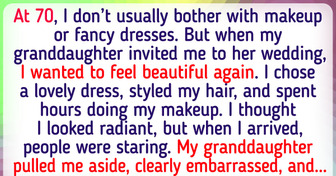
My MIL Excluded Us From the Family Trip Because We Don’t Have Kids, So We Made Her Regret It

12 Real-life Stories That Show Kindness Can Move Mountains

13 People Who Discovered Hidden Truths About Their Partners

I Demand That My Stepdaughter Pays Us Rent — Her Dad’s House Is Not a Free Hotel

Pierce Brosnan’s Wife Stuns People With Her Transformation During Her Latest Appearance

I Told My MIL She’s Not Allowed to Babysit My Child Anymore

Meet Lukas: the Real Story of Parry-Romberg Syndrome and How He Looks Today
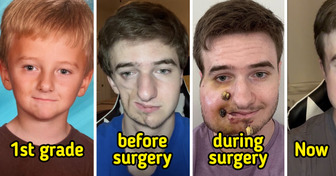
My Friend Uninvited Me From Her Baby Shower Last Minute and Then Got Mad at My Reaction

12 People Whose Life Has More Twists Than a Telenovela

15+ People Who Won’t Forget How Lady Luck Smiled at Them

